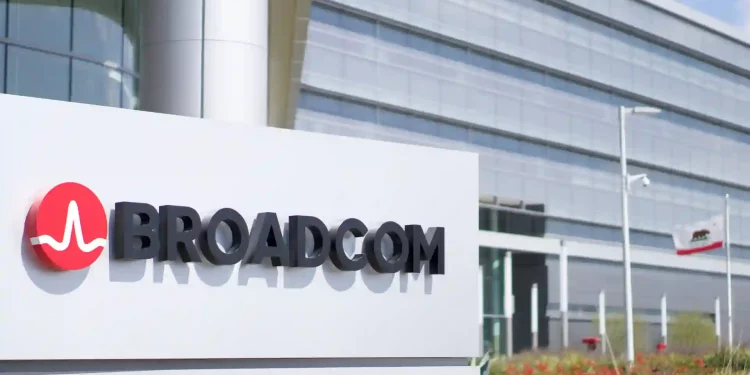Broadcom Inc. has agreed to buy cloud computing and virtualization software company VMware Inc. for USD61 billion, making it one of the largest tech deals in history, in an effort to enhance the chip maker’s foray into corporate software development.
According to a statement from the company, VMware shareholders can either choose to receive USD142.50 in cash or 0.2520 Broadcom stock for each VMware share. This offer is a 44 percent premium to the VMware closing price as on May 20.
The acquisition signifies the largest ever take-over for a semiconductor manufacturer. It also represents the latest in an acquisition spree by Broadcom CEO Hock Tan. Tan has succeeded in building one of the largest and most diversified companies in the sector.
The acquisition of VMware is slated to enhance software offerings from Broadcom, which has been an integral part of Tan’s acquisition strategy in recent years. Previously, he had acquired CA Technologies, a corporate software maker, in 2018, and in 2019, the company acquired Symantec Corp.’s enterprise security business.
The offer for VMware comes amid a market downturn for technology stocks. The acquisition comes with the backing of VMware investors Michael Dell and Silver Lake, and also includes a clause that will allow VMware to solicit a competing offer.
If VMware retreats from the deal for any reason, it stands to pay a USD1.5 billion break-up fee, unless it secures a superior offer by July 5. Broadcom will be liable to pay VMware USD1.5 billion if the transaction fails to secure regulatory clearance, or if it terminates the deal.
Broadcpom is one of the most valuable companies in the chip industry and manufactures and sells components for a wide variety of applications, ranging from iPhones to industrial equipment. The company projects some of its biggest growth coming from data centers, and the acquisition of VMware furthers that ambition.
Slashing expenses has been a key part of Tan’s strategy of acquiring companies. Broadcom cut the cost base at CA and the Symantec business by 60% to 70%.
In a statement, Tan said that the transaction builds upon a proven track record of mergers and acquisitions, and combines leading semiconductor expertise from Broadcom with an iconic innovator in enterprise software from VMware.
VMware has faced slowing revenue growth as its flagship virtualization software line matures. However, Broadcom software head Tom Krause said in an interview that its a reliable source of profitable sales.
Broadcom to evaluate VMware’s R&D spends
Krause said Broadcom will also evaluate where VMware is spending R&D funds, as well as some of the newer businesses that the software maker has acquired. But units like its security business and end-user computing unit will complement Broadcom’s existing product lines, he added.
Broadcom has received commitments from a consortium of banks for USD32 billion in new, fully committed debt financing to help fund the deal, and is expected to be completed in Broadcom’s fiscal year 2023. Broadcom will also assume USD8 billion of VMware’s net debt.
Broadcom was previously in talks to purchase SAS Institute Inc., a closely held software company valued at USD15 billion to USD20 billion. But those discussions ended last year without agreement.
VMware was founded in Silicon Valley in 1998, the same year as Google, and went on to become a pioneer in virtualization software, which consolidates workloads and applications on servers. The innovative software makes it easier for servers to handle multiple tasks.
In 2004, VMware was acquired by storage technology giant EMC Corp., which then sold a portion of its stake as part of VMware’s initial public offering three years later. The business passed to Dell Technologies Inc. when that company acquired EMC in 2016.
VMware spun off from Dell last year, but Dell and private equity investor Silver Lake remain top investors in the software company.
Making a foray into software would ease Broadcom’s reliance on chip manufacturing. However, earlier ventures into software were not met with investor approval. Tan has stated that he looks for companies that can hold a strong market position and can be made profitable without large investments.
Broadcom and other chipmakers have recorded incredible sales in recent years, which was triggered by a wider usage of semiconductors in various products, as also the pandemic-induced work from home situation. Tan, however, has warned that the boom time will not last. He mentioned that he expects the chip industry to decelerate to a historical growth rate of 5 percent.
Broadcom is targeting mid single-digit revenue growth for VMware. Tan was quoted as saying that he sees a lot of benefits in putting all these various franchises that the company has, including hardware and software, under one umbrella.


















